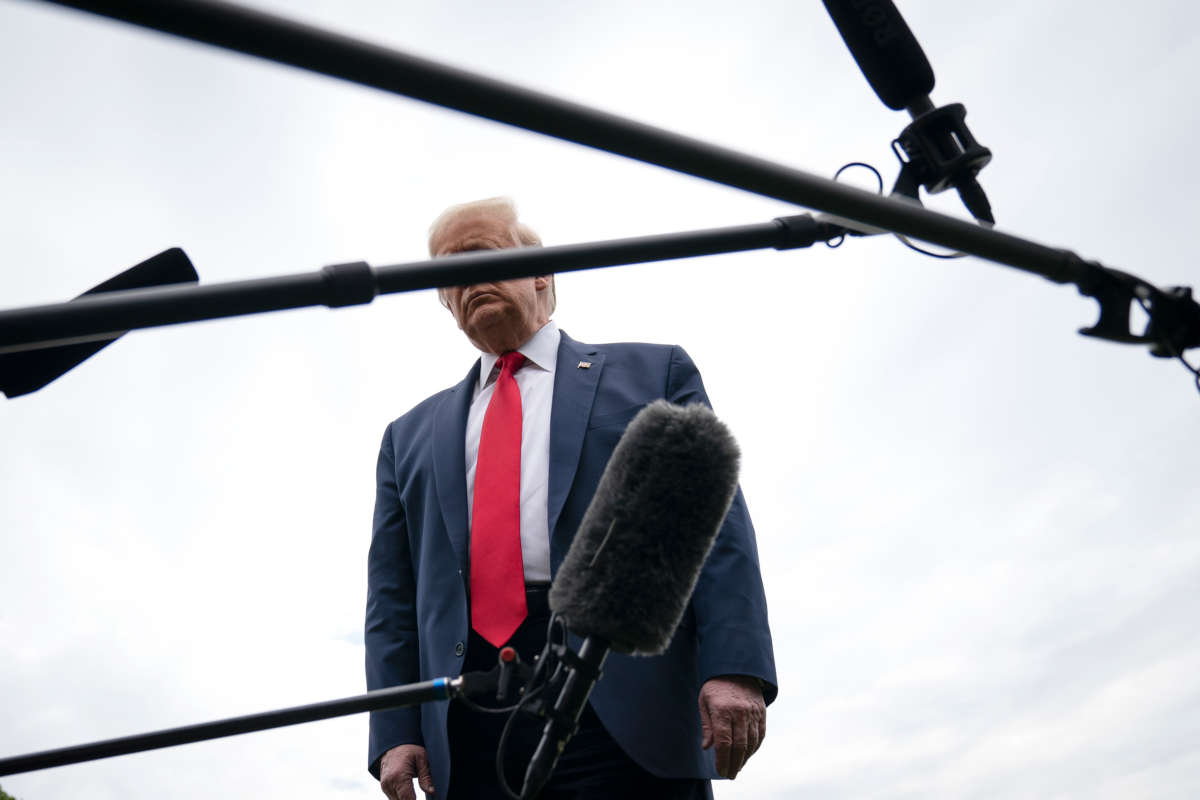The Trump administration will withdraw from a post-Cold War treaty that enabled signatories to keep tabs on member nations’ arms developments.
The Open Skies Treaty was negotiated in 1992 by the administration of President George H. W. Bush with Russia shortly after the fall of the Soviet Union. The treaty, which involves many other nations in Europe and Canada, allows each member state the right to fly reconnaissance planes over each other to provide assurances that no country is increasing its arms production in preparation for war.
The Trump administration is reportedly planning to justify its exit from the agreement over accusations that Russia wasn’t adhering to the accord.
“You reach a point at which you need to say enough is enough. The United States cannot keep participating in this treaty if Russia is going to violate it with impunity,” Marshall Billingslea, the president’s recently-named special envoy for Arms Control, said.
It’s possible that President Donald Trump may also have personal reasons for leaving the treaty. In 2017, Trump was reportedly upset over the fact that Russian planes flew over one of his golf courses in Bedminster, New Jersey.
On Friday, “the U.S. will submit notice of its decision to withdraw from the Treaty on Open Skies,” Secretary of State Mike Pompeo announced. Other member nations allied to the U.S. were informed of the decision to leave the treaty during the past week.
Pompeo left open the possibility that the U.S. would remain in the treaty, but only if Russia returned “to full compliance,” he said.
This marks the third major international agreement that Trump has exited during his tenure as president. Two years ago, the president removed the U.S. from the Iran nuclear accord, which was negotiated and implemented during the Obama administration. Last year, Trump also left the Intermediate-Range Nuclear Forces Treaty.
It’s possible that Trump’s departure from the Open Skies Treaty could signal his intention to eventually leave the New START agreement, which limits deployed nuclear missiles to 1,550 each for Russia and the U.S.
Many on social media expressed disgust and doubts about the decision to leave the Open Skies Treaty. Gen. Michael Hayden, who was head of the CIA primarily during the administration of President George W. Bush (but also for one month under President Barack Obama), registered his misgivings in an ableist tweet shortly after the plans for departure were announced.
Others suggested the move would lead to a new era of spying and increased distrust between the two nations.
“The likely effect” from exiting the treaty will be “U.S. allies having less information on Russian military activity, [and] a resurgence of espionage activity between Russia and the US,” DefenseOne tech editor Patrick Tucker said.
Steven Pifer, an arms control expert, expressed doubts on the legality over the decision to leave the treaty.
“Looks like #Trump decision to withdraw from #OpenSkiesTreaty is also [a] violation of US law. Sec. 1234 of FY 2020 National Defense Authorization Act requires notification to Congress 120 days before notification of intention to withdraw,” he wrote in a tweet.
Sen. Richard Blumenthal (D-Connecticut), a member of the Senate Armed Services Committee, also expressed alarm at Trump’s decision to withdraw from the treaty.
“Trump is abdicating American leadership in arms control & so many other areas of international relations — undermining our own national security & defense,” Blumenthal wrote.
Speaking against the authoritarian crackdown
In the midst of a nationwide attack on civil liberties, Truthout urgently needs your help.
Journalism is a critical tool in the fight against Trump and his extremist agenda. The right wing knows this — that’s why they’ve taken over many legacy media publications.
But we won’t let truth be replaced by propaganda. As the Trump administration works to silence dissent, please support nonprofit independent journalism. Truthout is almost entirely funded by individual giving, so a one-time or monthly donation goes a long way. Click below to sustain our work.
